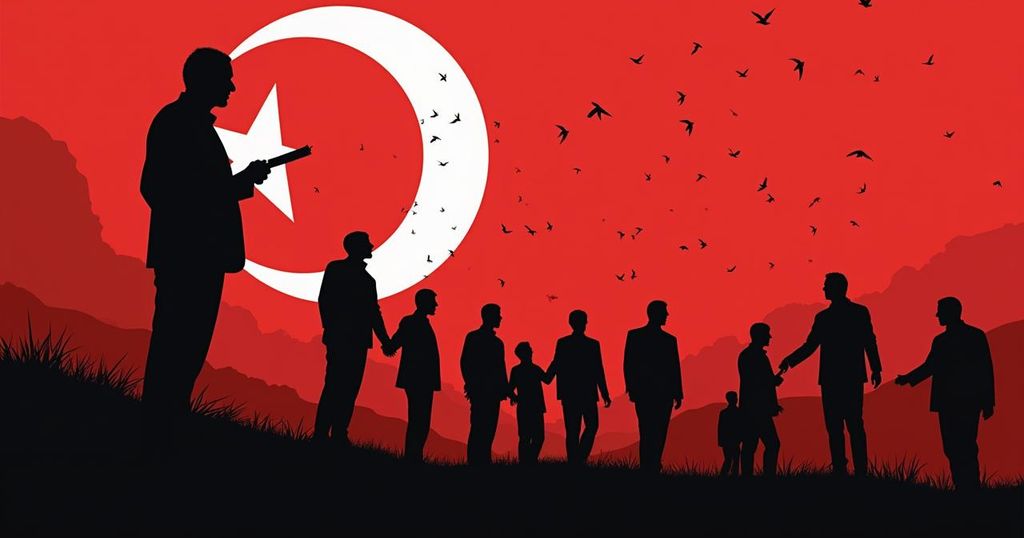As Tunisians head to the polls, President Kais Saied is poised for reelection in an atmosphere fraught with political dissent and repression. This election marks the first since Saied’s significant power consolidation actions in July 2021, raising questions about fairness and democracy. With economic challenges persisting and a backdrop of political repression, the election may serve as an indicator of public sentiment.”
On election day in Tunisia, President Kais Saied is expected to secure a second term, albeit under an environment marked by significant dissent and repression. This election, the third since the 2011 uprising that removed autocrat Zine El Abidine Ben Ali, presents a grim reality for democracy in a country once considered the foremost success of the Arab Spring. Five years after his initial election, and following a series of controversial decisions that have centralized authority in the presidency, Saied faces minimal opposition in a race partially characterized by the imprisonment of prominent dissenters, including opposition candidates. Tunisia has witnessed years of political turmoil and economic struggle, undermining its initial acclaim as a beacon of democracy amidst widespread upset in the Arab world. Saied, originally propelled into power by discontent with the political elite, continues to draw support from a loyal base, yet lacks clear political affiliation, complicating the understanding of his overall popularity. The election represents a litmus test of public sentiment regarding the Saied administration’s handling of Tunisia’s democratic trajectory since he took office. His critics, who have been systematically silenced through arrests and dubious charges promoting a climate of fear, question the legitimacy of the elections, leading major opposition coalitions to advocate for a boycott. Amid these political challenges, Tunisia’s economic landscape remains precarious. Unemployment has surged to 16%, particularly affecting youth, while external debt continues to rise. Economic reforms suggested by international financial entities are met with hesitance from Saied, further hindering recovery efforts. In tandem, a rising tide of irregular migration attempts underlines broader societal discontent, driven by both domestic economic strife and punitive governmental policies targeting migrants. Internationally, Tunisia’s shifting alliances reflect a nuanced approach, oscillating between maintaining relationships with Western partners and seeking new ties with nations such as Iran and China under Saied’s administration. Despite the shifting geopolitics, Tunisia manages to retain vital economic connections with European counterparts, who view Saied’s migration management as exemplary, albeit recognizing the complex challenges at home. Moving forward, the outcome of this election will likely shape Tunisia’s political and economic future as well as dictate the nation’s role regionally and globally. The growing disparity between public expectations and governmental actions presents a formidable challenge for the Tunisian government and the people.
In the context of the Arab Spring, Tunisia emerged as a significant case study due to its relatively peaceful transition towards democracy following the ousting of a long-term autocratic regime. This election signifies yet another critical juncture in the broader narrative of Tunisia’s post-revolution journey. The political landscape has fundamentally transformed since 2011 with increasing authoritarianism under President Kais Saied, who has enacted measures consolidating his power while stifling dissent. The elections serve as a crucial indicator of citizens’ sentiments regarding the shifting democratic framework and their confidence in the current leadership to address both governance and economic issues.
Ultimately, the impending election in Tunisia symbolizes more than just a political contest; it encapsulates the struggles inherent in reconciling democratic aspirations with increasing autocracy. The significant absence of credible opposition, compounded by economic difficulties and public apathy, may lead to a further entrenchment of authoritarian rule. The global community watches closely, as the outcomes may both redefine Tunisia’s political landscape and influence broader regional dynamics.
Original Source: www.cnn.com






